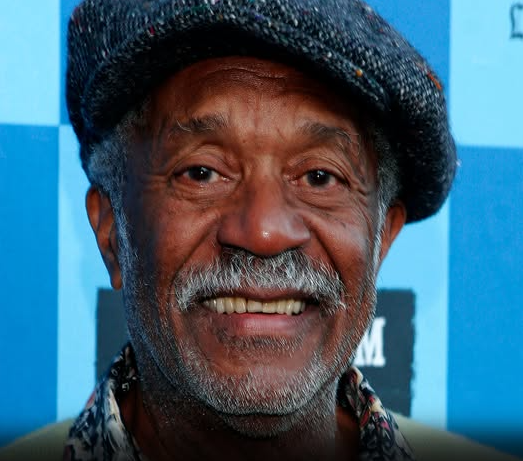For more than half a century, Lee Weaver graced television and film screens with a remarkable blend of sincerity, humor, and heart, becoming one of those rare actors whose presence felt instantly genuine, comforting, and unforgettable. From the iconic sitcoms Good Times and The Jeffersons to the whimsical and surreal O Brother, Where Art Thou?, Weaver brought a unique authenticity to every role he inhabited. Audiences didn’t just watch his characters; they felt them — as though they were encountering real people, full of quirks, warmth, and humanity. The characters he played were often small parts of larger stories, yet he infused each one with a life and depth that made them linger in memory, proving that even the briefest appearances could leave a lasting impact.
Yet behind the credits and beyond the camera lens was a man whose own life story was as fascinating and layered as any character he ever portrayed. Born and raised in Florida, Weaver’s journey to Hollywood was neither straight nor easy. He served in the Army, learning discipline, resilience, and a quiet confidence that would serve him both on stage and on screen. He spent time working on a printing press, discovering the rhythm of words and the tactile satisfaction of crafting something tangible — a skill that would inform his understanding of storytelling. And he immersed himself in the vibrant jazz scene, soaking up the improvisation, spontaneity, and creative energy that would later influence his approach to acting. Each experience, each detour, each chapter of his early life contributed to the grounded, multi-dimensional presence that would define his performances.
Weaver belonged to a vanishing era of actors — a generation that viewed performance not as a vehicle for fame, wealth, or social status, but as a sacred form of communication, a bridge connecting lives, emotions, and stories. In every role, he embodied the idea that acting was a service: a way to reflect humanity, to invite audiences into shared experiences, and to remind them of the universal threads that bind people together. Even as he approached his 95th year, Weaver carried the same energy, curiosity, and passion that had propelled him from Florida’s modest beginnings to the bright lights of Hollywood. His dedication to his craft never wavered, and his presence on set, both in front of and behind the camera, was a testament to a life lived with purpose, care, and humility.
Those who knew him personally often spoke of his generosity and kindness. Weaver was not an actor who sought the spotlight for its own sake; he sought connection, authenticity, and truth. Co-stars and crew members alike remember a man who listened intently, who laughed wholeheartedly, and who brought out the best in those around him. His artistry was inseparable from his humanity: he didn’t just portray characters, he inhabited them with empathy and insight, reminding audiences that the finest acting doesn’t rely solely on lines or gestures, but on the actor’s ability to channel lived experience and genuine emotion.
The passing of Lee Weaver marks not just the conclusion of a remarkable career, but the quiet departure of a man who left an indelible mark on the entertainment world. Television and film are filled with stars whose fame outshines their humanity, but Weaver’s work was always the opposite: his characters radiated life because the man behind them did. He had a subtle genius for taking roles that might have seemed minor and transforming them into unforgettable moments. A look, a pause, a subtle inflection — these were the tools of his craft, wielded with precision and heart.
His influence is felt not only through the work he left behind but also through the countless actors, storytellers, and audiences he inspired. Weaver’s life serves as a reminder that true greatness in the arts does not always announce itself with grandeur or spectacle. Sometimes, it is quiet, steady, and unassuming, manifesting in small, perfect touches that linger in memory long after the curtain falls. The warmth of his humor, the honesty of his performances, and the generosity of his spirit created ripples that extended far beyond the screen, touching the hearts of anyone lucky enough to encounter his work.
Reflecting on Lee Weaver’s life and legacy, one is struck by the timeless quality of his artistry. He was a master of balance: blending comedy with sincerity, levity with gravitas, and imagination with realism. He was a storyteller in the truest sense, and through every character, he offered audiences a gift: a mirror to their own humanity, a moment of laughter or recognition, and a reminder that even the smallest gestures of authenticity can leave profound impacts.
As the world remembers him, it is clear that Lee Weaver’s contributions were far greater than any single performance or award. His legacy is woven into the fabric of television and cinema, in the hearts of fans, in the memories of colleagues, and in the enduring joy his work continues to bring. Even in his absence, he remains a beacon for those who value artistry rooted in compassion, humor, and humanity — a reminder that while talent may be inherited or honed, true greatness is inseparable from character, kindness, and the courage to bring one’s full self to the work.
In celebrating Lee Weaver, we celebrate more than an actor; we honor a life lived fully, a craft pursued passionately, and a heart shared generously. He showed us, with every scene and every role, that the power of storytelling lies not in spectacle, but in the quiet, enduring humanity it captures. And in that, his legacy will continue to resonate for generations, a testament to a life well-lived and a world made richer for his presence.
